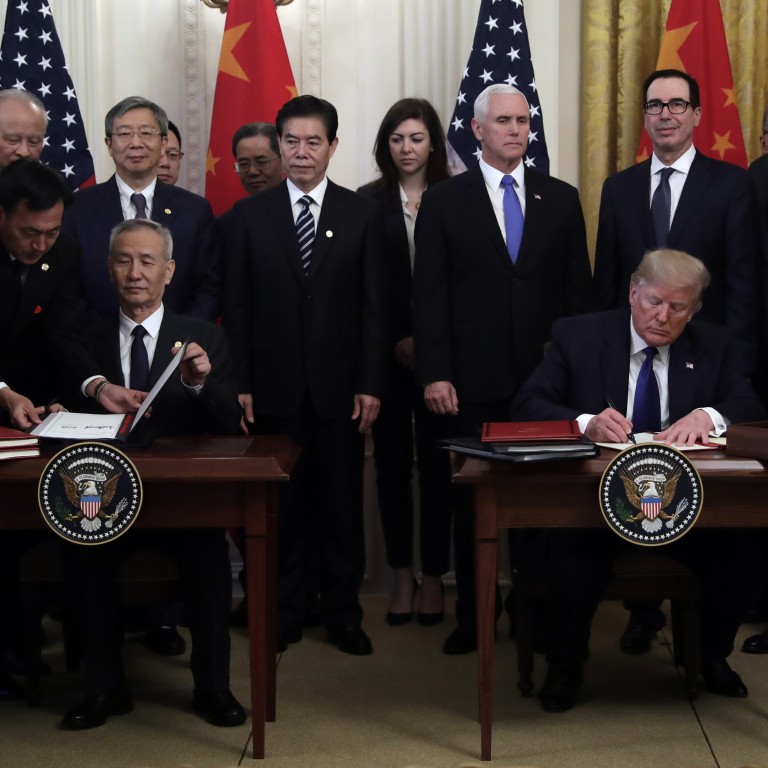
US-China trade war deal: Liu He reassures Beijing’s other partners they will not lose out
- Vice-premier says commitments to Washington on intellectual property rights, technology transfers and market access will apply to all partners
- Liu says Chinese and US economies are strongly interconnected and shoots down talk of decoupling
“We stuck to two important conditions during negotiations [with the US]. The first was that it won’t hurt any third party, and the second was that it sticks to the principles of the World Trade Organisation,” he was quoted as saying by Chinese business magazine Caixin.
While US President Donald Trump hailed the deal as a “momentous step”, China’s other trading partners – concerned Beijing might buy less from them – were looking for signs that they would be sidelined.
The US-China deal involves a commitment from Beijing to buy, over two years, at least US$200 billion of American goods and services more than it did in 2017.
China hails phase one trade deal, but waits eight hours before posting text
At the height of the tariff war, China bought more soybeans from nations such as Brazil and Argentina. In 2018, China imported 66.1 million tonnes of soybeans from Brazil – an increase of 30 per cent on the previous year – accounting for 75 per cent of its total imports of the crop.

But Liu said the interests of China’s other trading partners would not be put at risk, saying that purchases of US products would be based on demand.
“It is not an order, but the imports of US agricultural products will be made by companies based on market demand. After importing, the products will face domestic inspection and examination by domestic consumers,” he said.
“If your product is not competitive in price and quality, it won’t be sold in China.”
Liu also said that the signing of the deal indicated that the economies of China and the US were strongly interconnected, and it would not be possible for them to decouple as some analysts have suggested.
“It is not realistic to talk about decoupling between China and the US,” he said. “The reaching of the phase one deal can effectively stop such an inclination.”

